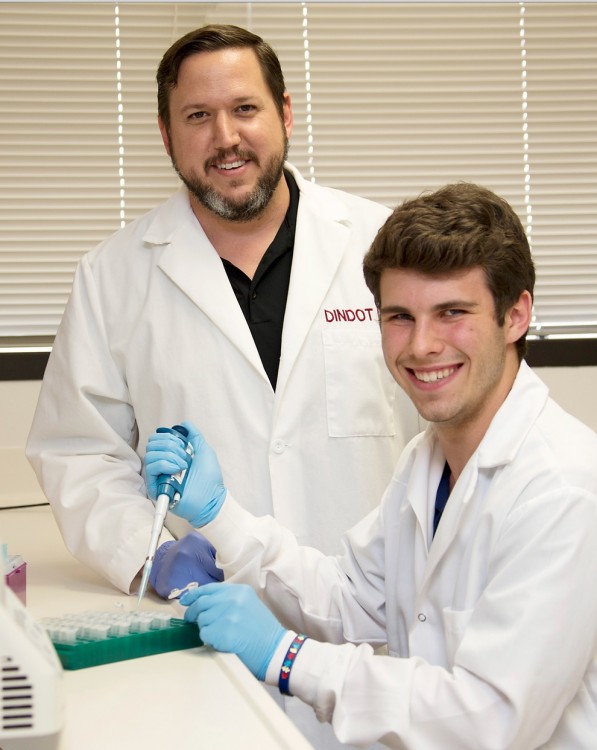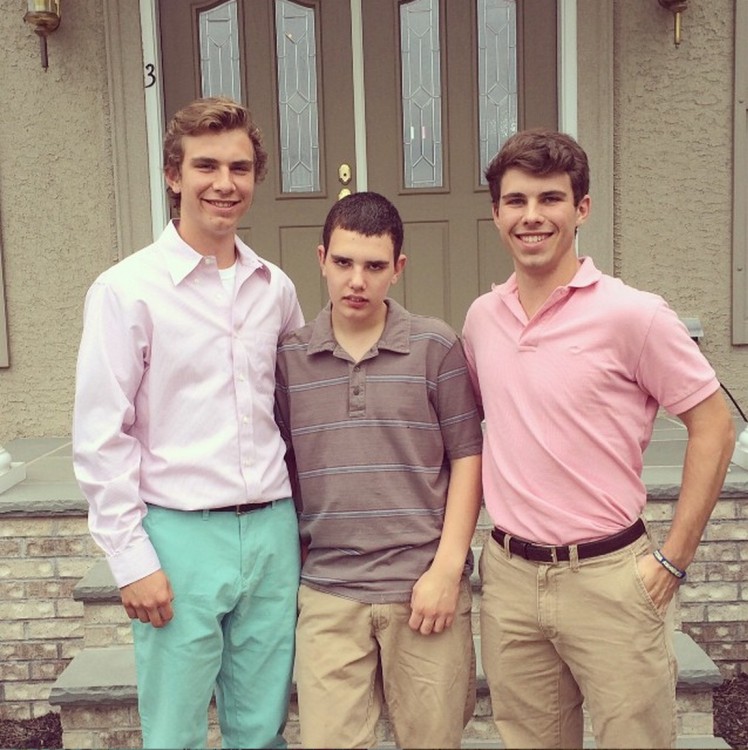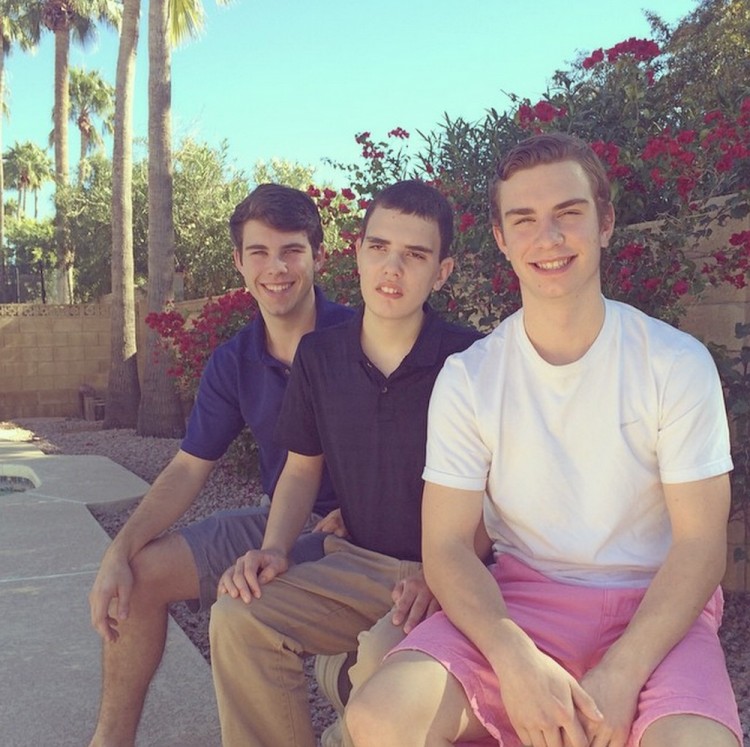
Dylan Ritter has spent his summer looking at flies.
In a Texas A&M University lab in College Station, Texas, the 20-year-old has worked overtime and on weekends observing the notoriously annoying bug’s sleep and wake cycles. But he’s not doing this purely for the love of science — he’s working to improve his younger brother’s life.
Travis Ritter, 17, has Dup15q syndrome, a rare chromosomal duplication which often comes with a variety of developmental disabilities and challenges including autism, seizures, hypotonia as well as anxiety and sensory disorders.
Dylan Ritter says he’s played a paternal role to Travis since childhood, stepping in when their parents needed an extra hand. “It really wasn’t a big deal,” he told The Mighty. “It was just something different we had to account for.”
Last year, he took his big brother role to a new level after reading an article that detailed Dr. Scott Dindot’s unique mouse model research on Dup15q. Ritter wanted in — he pitched himself to Dindot in an email and later began working in Dindot’s lab at Texas A&M, where he’s quickly made himself a stand-out researcher.
“Dylan is an amazing person,” Dindot told The Mighty. “[He’s] extremely bright and motivated, fearless, and a genuinely nice person.”
During his summer research, Ritter found flies with Dup15q woke up at abnormal times or that their sleep behaviors would be off depending on when they went to sleep. When he then returned home to New Jersey, he realized a similarity in his brother’s behavior. Travis Ritter typically went to bed at 11:30 p.m. and would wake Dylan Ritter up bright and early at 6 a.m.
“He’s fully awake and ready to go. I’m sitting there like how’s this possible?” Ritter told The Mighty. But then he recalled his research and realized the combination of Travis’ mere six and a half hours of sleep and his hyperactivity might be due to Dup15q syndrome. “It’s really kind of amazing being able to see something like that, having my research correspond to something at home,” Ritter told The Mighty.

The first time Mike Porath, founder of The Mighty, saw the Ritter brothers together was at a pool party in New Jersey for families in the Dup15q Alliance, an organization that brings people affected by the condition together and promotes research. Porath, whose daughter Annabel had recently been diagnosed with Dup15q, watched closely as Dylan, Travis and Austin Ritter played in the pool together. While dealing with the uncertainty of his daughter’s future, he found comfort in the Ritter siblings’ relationship. On the way home, his wife Sarah brought up that she’d been watching them, too.
“It gave us something to work toward as a family,” Mike Porath said. “We wanted what the Ritter boys have. It’s nice to have clear cut examples that you’re working toward.”

After he graduates from the University of Mississippi, Dylan Ritter plans on attending medical school, and he hopes to continue researching Dup15q — even if that means being surrounded by flies. He’ll do whatever it takes to promise his brother the best possible life.
“I think [Dylan] is one of a kind,” Dindot told The Mighty, “and what he is doing is perhaps one of the most admirable and inspiring things that I have ever seen.”
Correction: A previous version of this article incorrectly stated Dr. Dindot’s lab’s location. His lab is located in College Station, Texas.
